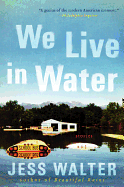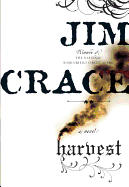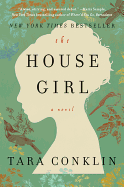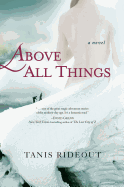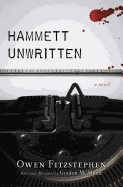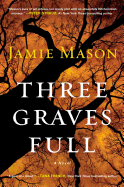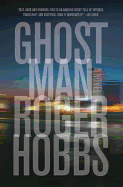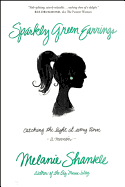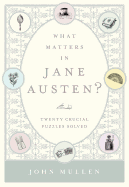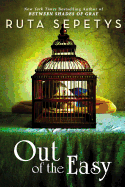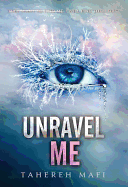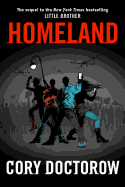 |
| photo: Michael Lionstar |
Roger Hobbs graduated from Reed College in 2011, after majoring in English and studying ancient languages, film noir and literary theory. He wrote the first draft of Ghostman (reviewed below) in the summer between junior and senior years, rewriting it throughout his senior year. He sent the manuscript to an agent the day he received his diploma. After vigorous bidding at the Frankfurt Book Fair, foreign rights have been sold to 14 countries; film rights went to Warner Bros. Knopf is starting off with a first printing of 150,000 copies. Hobbs lives in Portland, Ore.
When and why did you start writing?
I've been a writer since I was old enough to use a computer, at age 12. I don't know why I stuck to it--I think I enjoyed the feeling of playing God. When I'm behind a keyboard, I can create and control whole universes with the tips of my fingers. Between ages 12 and 21, I wrote seven full-length novels, two plays, a movie, and two spec television episodes. I have been writing four hours a day, every day, for 10 years.
Where did the idea for a crime thriller heist come from?
I wasn't always a crime fiction writer. When I was a teenager, I wrote a series of science fiction thriller novels. I didn't start writing crime fiction until I was 15, when I read Robert Crais's The Monkey's Raincoat, the first in a series of detective novels featuring Elvis Cole. For those who don't know, the Elvis Cole novels are written in this stunningly friendly, strong, funny, exciting voice. I found that voice so compelling that I immediately started writing my own private investigator novel. After that I moved on to other authors that I thought had strong, dark writing styles. I read everything from Dashiell Hammett to James Ellroy to Lee Child to James Patterson. Crime fiction, with its fast pace and brutal suspense, spoke to me like nothing else.
Your main character, Ghostman, or Jack--where did he come from?
Ghostman started out with a simple question: What would it be like to live without an identity? Every time I sat down at my computer, I'd try to keep that question in mind. What would he do with his spare time? How would he manage his self-esteem? How would he fall in love? How would he get attention? What would motivate him?
My character is a man with an extraordinary, one-in-a-million talent: he is completely unmemorable. You could walk by him on the street every day and never notice him. He represents the ultimate freedom--he can be whomever he wants. That idea, that freedom, is where Jack came from.
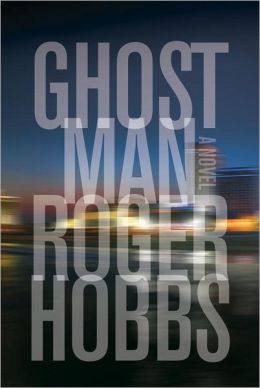 Did you do a lot of research for the novel? There's a lot of very specific and hard to find information about bank vaults, the Fed and its currency, weapons, etc.
Did you do a lot of research for the novel? There's a lot of very specific and hard to find information about bank vaults, the Fed and its currency, weapons, etc.
First things first--I made a significant portion of the information up, off the top of my head. I know I'm going to get a lot of e-mails from folks saying I got stuff wrong, but I don't care. My research is in service of the story, not the other way around. It's a fantasy, after all.
That being said, however, I did a lot of research, and a great deal of the information in the book is factual, more or less. I traded cigarettes for stories with criminals in dive bars across the country. I talked with hitmen and bank robbers in secure chat rooms. I learned to pick locks and shoot guns and steal cars. I've been on the inside of more than a few high-level bank vaults. I've seen the inside of casino security. I got as close to the criminal world as I could without crossing over. I spent two years researching this book, so I could make it feel real. That's my goal--I didn't want to write nonfiction, but to write with an authentic ring to it.
There's quite a bit of violence in the novel. What are your feelings about this?
In my opinion, a lot of thrillers "clean up" their violence too much. Too much of it is bloodless and painless. People may die on almost every page, sure, but each individual death isn't very shocking. By taking away the blood and the suffering, I think a lot of books and movies trivialize the acts of violence they portray. I didn't want that for Ghostman.
I wanted Ghostman to be shocking to the core.
Murder is supposed to be bloody. Death is supposed to painful. Real violence, in my experience, is loud and close and way too personal. I wanted Ghostman to give the reader that same shock, excitement and horror that real violence does. I wanted it to be something you've never seen before--like killing a man by feeding him a jar of nutmeg, as I mention in one of the early chapters.
Time is almost a character in the novel--did you see it as a key element in creating your narrative?
Absolutely. I came up with the timeline before I came up with anything else. Giving characters a time limit forces characters who would otherwise deal with things slowly to take exaggerated risks and work on the fly. Time provides a clear shape to the narrative. The reader has a constant sense of what might happen next--and when something different happens, it's a surprise. I wrote the book to have no breaks, no seams, and no place to put the novel down. The timeline helped me do that.
What sets your book and its main character apart from others in a pretty crowded field?
There aren't a lot of unapologetic criminals headlining books or movies these days. Sure, every few months there'll be a book about a guy on the other side of the law, but most of the time these characters are redeemed in some way: this is their One Last Job, or they're only doing it to protect their family, or they've switched sides and now they're working for the "good guys," whatever that means. Jack isn't like that. He's a bad guy, and there's no denying it. There's no moral code here. There's no worn-out, rote sermon at the end about putting bad guys behind bars. My character is more like the rest of us--he does some good things, he does some bad things, and he doesn't worry about the rest of it. I think that's refreshing.
Finally, what's next for Roger Hobbs? Do you have a new novel in the works? Will we see a Ghostman Redux?
There will be another novel featuring the Ghostman, which I hope will come out in the next year or two. If you're still asking questions after Ghostman, don't worry. There are a lot of things I have yet to explain. I hope to work with this character for quite a bit longer. --Tom Lavoie, former publisher
Roger Hobbs: 'Crime Fiction Spoke to Me'
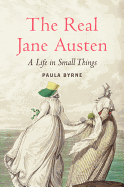 Today's issue features Nancy's review of What Matters in Jane Austen. Earlier this week, we reviewed The Real Jane Austen: A Life in Small Things, which examines the minutiae of daily 18th- and 19th-century life to shed new light on the beloved author. Recent issues have covered The Missing Manuscript of Jane Austen, in which an Austen scholar unearths a lost manuscript in an English manor house, with the help of the house's handsome owner; A Dance with Jane Austen: How a Novelist and Her Characters Went to the Ball, a beautifully illustrated exploration of dance in the life and novels of Austen; The Jane Austen Marriage Manual, in which an Austen devotee sets out on a mission to marry for money; and Midnight in Austenland, a mystery set in a theme resort where one wears empire gowns, flirts modestly and lives like Elizabeth Bennet.
Today's issue features Nancy's review of What Matters in Jane Austen. Earlier this week, we reviewed The Real Jane Austen: A Life in Small Things, which examines the minutiae of daily 18th- and 19th-century life to shed new light on the beloved author. Recent issues have covered The Missing Manuscript of Jane Austen, in which an Austen scholar unearths a lost manuscript in an English manor house, with the help of the house's handsome owner; A Dance with Jane Austen: How a Novelist and Her Characters Went to the Ball, a beautifully illustrated exploration of dance in the life and novels of Austen; The Jane Austen Marriage Manual, in which an Austen devotee sets out on a mission to marry for money; and Midnight in Austenland, a mystery set in a theme resort where one wears empire gowns, flirts modestly and lives like Elizabeth Bennet.



 Did you do a lot of research for the novel? There's a lot of very specific and hard to find information about bank vaults, the Fed and its currency, weapons, etc.
Did you do a lot of research for the novel? There's a lot of very specific and hard to find information about bank vaults, the Fed and its currency, weapons, etc.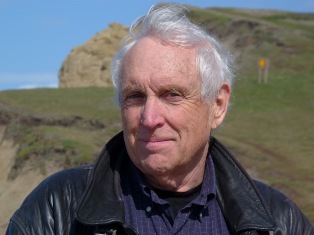 Stephen Dobyns has published 13 books of poems, 20 novels, a book of stories and two books of essays on poetry. His most recent collection of poems, Winter's Journey, was published in 2010 by Copper Canyon. Two of Dobyns's novels, two short stories and his book of poems Black Dog, Red Dog have been made into films. His latest novel,
Stephen Dobyns has published 13 books of poems, 20 novels, a book of stories and two books of essays on poetry. His most recent collection of poems, Winter's Journey, was published in 2010 by Copper Canyon. Two of Dobyns's novels, two short stories and his book of poems Black Dog, Red Dog have been made into films. His latest novel, 
